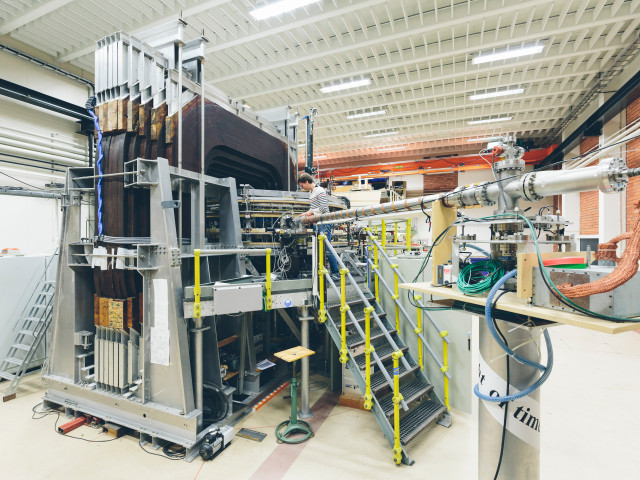The course is an extension of the course SI1336 Simulation and modeling and requires that the student has either completed SI1336 or is registered for SI1336 at the same time as this course. The course consists of a modeling and simulation project within biological systems. The student must develop the project themselves, which may, for example, deal with populations or reactions in a cell. Particular focus is placed on discovering and understanding sensitivities of models for biological systems.
SK2541 Simulation and Modelling of Biological Systems 1.5 credits

Information per course offering
Information for Autumn 2025 Start 27 Oct 2025 programme students
- Course location
AlbaNova
- Duration
- 27 Oct 2025 - 12 Jan 2026
- Periods
Autumn 2025: P2 (1.5 hp)
- Pace of study
10%
- Application code
51025
- Form of study
Normal Daytime
- Language of instruction
Swedish
- Course memo
- Course memo is not published
- Number of places
Places are not limited
- Target group
- No information inserted
- Planned modular schedule
- No information inserted
- Schedule
- Schedule is not published
- Part of programme
Contact
Course syllabus as PDF
Please note: all information from the Course syllabus is available on this page in an accessible format.
Course syllabus SK2541 (Autumn 2024–)Headings with content from the Course syllabus SK2541 (Autumn 2024–) are denoted with an asterisk ( )
Content and learning outcomes
Course contents
Intended learning outcomes
After passing the course, the student must be able to:
- Model and simulate biological systems in a quantitative way
- Analyze and discuss sensitivities of models
Literature and preparations
Specific prerequisites
No information inserted
Literature
You can find information about course literature either in the course memo for the course offering or in the course room in Canvas.
Examination and completion
Grading scale
P, F
Examination
- PRO1 - Project, 1.5 credits, grading scale: P, F
Based on recommendation from KTH’s coordinator for disabilities, the examiner will decide how to adapt an examination for students with documented disability.
The examiner may apply another examination format when re-examining individual students.
If the course is discontinued, students may request to be examined during the following two academic years.
Examiner
Ethical approach
- All members of a group are responsible for the group's work.
- In any assessment, every student shall honestly disclose any help received and sources used.
- In an oral assessment, every student shall be able to present and answer questions about the entire assignment and solution.
Further information
Course room in Canvas
Registered students find further information about the implementation of the course in the course room in Canvas. A link to the course room can be found under the tab Studies in the Personal menu at the start of the course.
Offered by
Main field of study
Engineering Physics
Education cycle
Second cycle